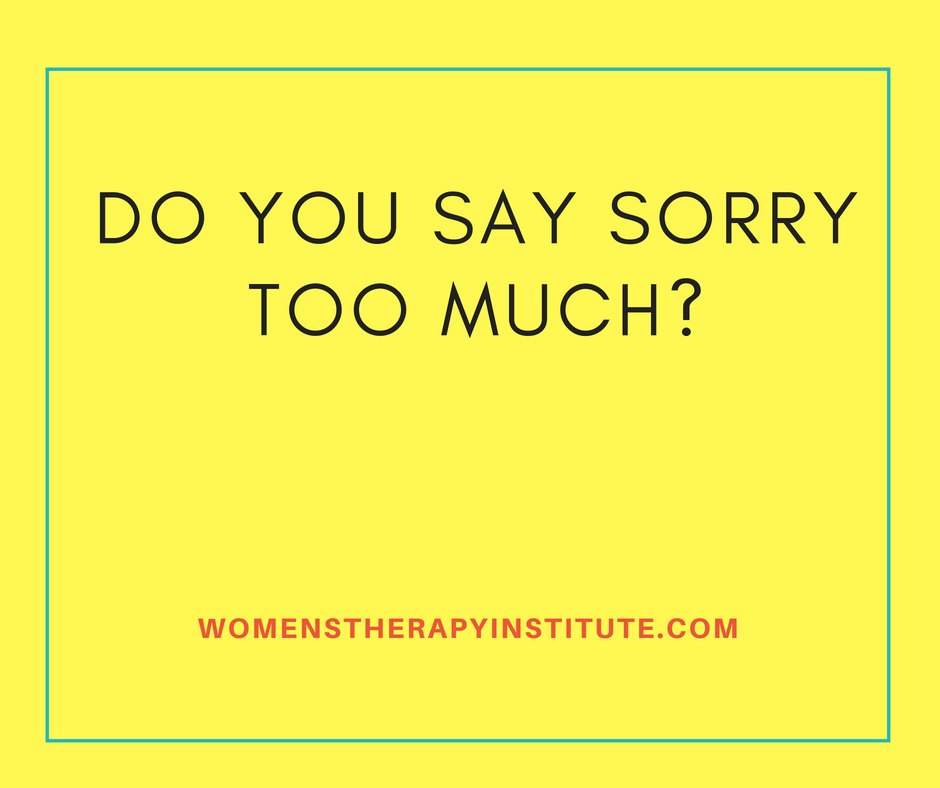
Do you say sorry too much?
When disagreements occur, are you quick to jump in and say “I am sorry”? Even when you might not really be sorry. Maybe you don’t even think you did anything wrong, or maybe you were upset by something the other person said or did but rather than addressing it, you say “sorry.”
It is possible to say “sorry” too much. It can be a quick way to get out of conflict, to avoid the disagreement from extending into another. It is avoidant and it is not healthy.
Conflict isn’t bad.
Every relationship has some kind of conflict. It is healthy and helps your relationship to grow and strengthen when handled in a constructive way. By constantly apologizing, even when you don’t really mean it, you are creating unhealthy boundaries. You are not addressing things that might be a problem for you. You are not airing your grievances and in turn are likely building resentment. And, you are showing the person you are in conflict with that you can be walked on because you won’t stand up for yourself.
By immediately saying “sorry” you are closing the door to the discussion. You are eliminating the space to make changes that could help you feel happier and help your relationship.
It is common for people who are not confident in conflict-resolution skills to apologize too much. It becomes a knee-jerk reaction. But, the best way to improve those skills is to try them out and gain confidence. Not only will discussion help to strengthen and grow your relationships, but it will also help you to feel better about yourself.
The first step to ending the cycle of the chronic apologizer is to first recognize and acknowledge it is a problem. Then next time you are faced with conflict don’t jump to the apology, instead take the time to share your side, express your needs and your feelings. You won’t regret it, and even if it doesn’t go as well as you would have hoped at least you are making strides in the right direction.
